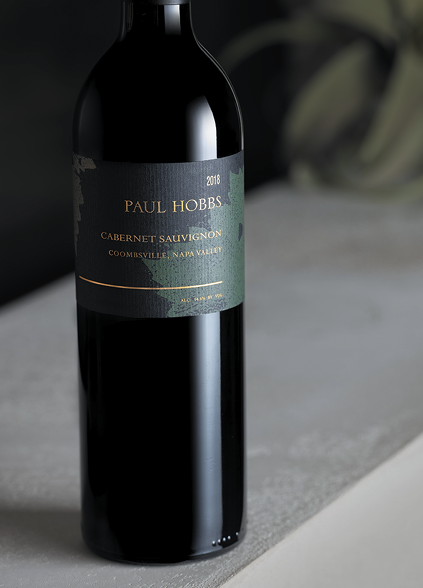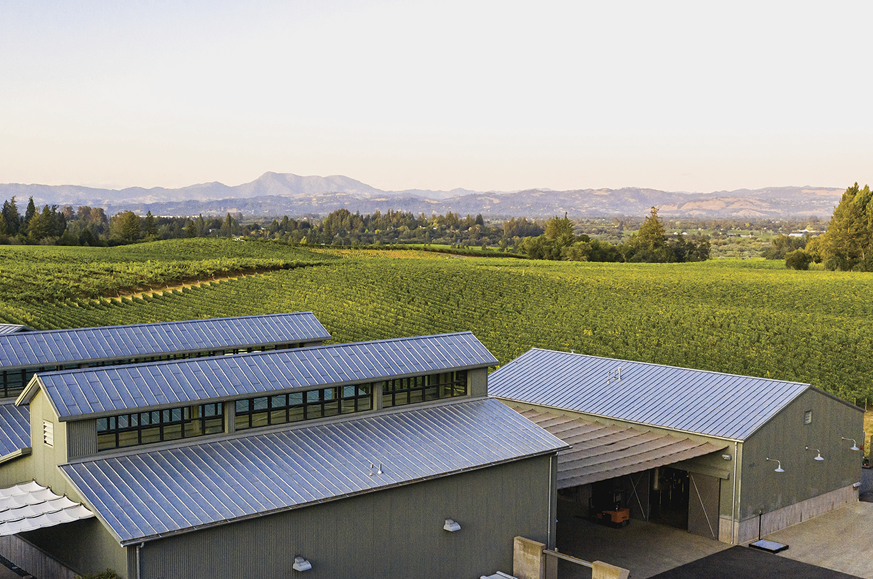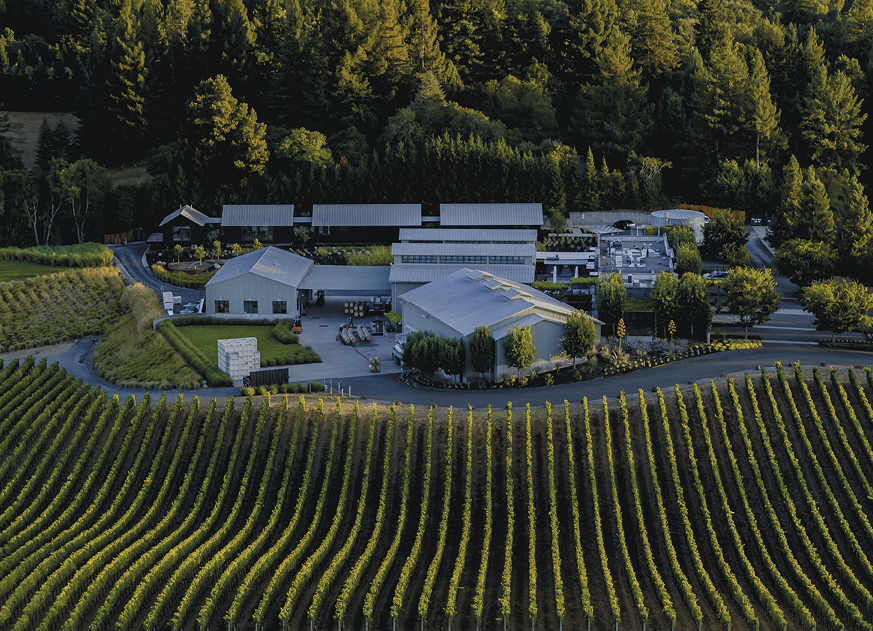- Home
- Media Kit
- MediaJet
- Current Issue
- Past Issues
- Ad Specs-Submission
- Reprints (PDF)
- Photo Specifications (PDF)
- Contact Us
- PRIVACY POLICY
- TERMS OF USE
![]()
ONLINE
![]()
ONLINE

On the Leading Edge
Editors’ Note
Paul Hobbs is a world-renowned winemaker. In 2013, Forbes magazine referred to Hobbs as “The Steve Jobs of Wine.” He has been twice named “Wine Personality of the Year” by Robert Parker of The Wine Advocate. Over his 40+ year career, Hobbs has received more than ten 100-point scores across his portfolio – a rare feat that places him in the top echelon of the world’s winemakers. Regarded as an international visionary for his accomplishments in the vineyard and winery, Hobbs combines his childhood roots on the family farm in Western New York with an innovative scientific approach to refine the art of winemaking. He is recognized across the globe for breaking with tradition and forging new paths in the pursuit of excellence, both in stewardship of the land, and the crafting of wines that represent the purist concept of place – leading the way in the early ‘90s as a pioneer of site-specific, vineyard designate wines. In 1979, he was appointed a member of the inaugural Opus One winemaking team joint venture between Robert Mondavi and Mouton Rothschild of Bordeaux. Later, a first trip to Argentina in 1988 marked the beginning of what today has become a highly consequential South American winemaking career. Prominently featured in Ian Mount’s The Vineyard at the End of the World: Maverick Winemakers and the Rebirth of Malbec, Hobbs is recognized for his legendary status as the pioneer winemaker who played the leading role in launching the variety’s rise to fame in the U.S. market. Today, Hobbs is owner and vintner for eight wineries around the world: Paul Hobbs Winery, Crossbarn, and HOBBS (Sebastopol, California), Hillick & Hobbs (Finger Lakes, New York), Viña Cobos (Mendoza, Argentina), Crocus (Cahors, France), Yacoubian-Hobbs (Armenia), and Alvaredos-Hobbs (Galicia, Spain). Hobbs graduated from Newfane, earned his BS in chemistry from the University of Notre Dame, and his MS in viticulture and enology from the University of California, Davis.
Winery Brief
Inspired by his upbringing on a family farm, pioneering winemaker Paul Hobbs established his namesake winery in 1991 after working with some of the world’s greatest vintners. From establishing his Katherine Lindsay Estate in 1998 to commissioning renowned architect Howard Backen to design the accompanying buildings, he has always been relentless in his pursuit of excellence. Today, Paul Hobbs Winery (paulhobbswinery.com) embodies Hobbs’ belief that meticulous care in the vineyard and minimal intervention in the cellar yield world-class, site-specific wines.
.png)
Paul Hobbs inspects incoming cabernet sauvignon fruit
Did you know at an early age that you had a passion to work in the wine industry?
The answer is no. I grew up in an environment that was devoid of alcoholic beverages in general. Wine wasn’t a big part of my early life, and my parents even made a pact that alcohol wouldn’t be served at the dinner table. We were in farming, but we were not in a well-known grape growing region, so wine was not on my radar. My father was the person who steered me in the direction of the wine industry when he started making trips to the Finger Lakes where he met Dr. Konstantin Frank who had one of the most prestigious wineries in the Finger Lakes. My father decided we would convert some of the apple orchards on our farm to grapes, and he decided that this was something his second oldest son, namely me, would be best suited to do.
So, I learned how to plant vineyards, but at the time I was only doing this for my father as my career goal was to become a medical doctor. My father signed off on me taking a wine-appreciation course while I was in college at Notre Dame, and after graduation I enrolled at U.C. Davis and took an apprenticeship at Robert Mondavi Winery while studying oak extracts in 1977. A year later, I took a full-time position with Mondavi and at that time, Opus One, the collaboration between Mondavi and Mouton-Rothschild, was just getting off the ground. When Mr. Mondavi appointed me to the inaugural Opus One team in 1979, I was hooked.

2018 Paul Hobbs Cabernet Sauvignon, Coombsville
What led you to create your own brand?
I was technically trained, and I understood the chemistry of wine which set me apart from many other people working in the industry. As I continued to gain experience and grow, I felt that I had an advantage and could take what I learned at Mondavi, as well as what I learned at SIMI Winery where I worked following my time at Mondavi, and go out on my own.
It is hard to start your own business since it is so capital intensive, and this is what led me to South America. A first trip to Argentina in 1988 was the beginning as I met and eventually partnered with Nicolas Catena of Bodega Catena Zapata, and was able to help pioneer the renaissance of the country’s signature grape, Malbec. This partnership eventually led to the start of Paul Hobbs Winery.

Paul Hobbs Winery in Sebastopol, California
How has technology impacted the winemaking process?
Technology has heightened our level of craftsmanship by giving us more control in the field and winery. We can better measure the impact of something that we do in real time. It enables us to monitor and dial something in outside of simply tasting – we can analyze all critical aspects of the process. However, this does not replace the craftsmanship that is required to make great wine. We use technology to enhance every aspect of the winemaking process.
Will you discuss Paul Hobbs’ commitment to sustainability?
We know that there are places that have been farmed for over 6,000 years that are still producing beautiful wines, and you have to give back to nature. We want our vines to have a long life, and to do that you need to invest the time and resources to be sustainable. We believe it is vital to take care of what takes care of us.

Paul Hobbs Winery in Sebastopol, California
How critical has it been to build the Paul Hobbs team?
This is one of the toughest things to do because you can’t build a company for the long run without great people, and you can’t do it all yourself. In the early years, I would train someone, but they would get hired away which is very frustrating. As the company has progressed, and especially over the past ten years, we have found stability in our leadership team because of the strong culture we have built which has been huge for the business. Having the right talent allows us to make better wines and to be a better company.
Do you take moments to reflect and celebrate what Paul Hobbs has become over the past 30 years?
To some degree, but not too much. We are having fun and have a lot of ideas for the future, but our team is always focused on trying to be on the leading edge of what is possible. I enjoy reflecting together with people who have been with me for 20 to 25 years to take account of where we are and to be thankful for our success. We feel blessed to be working in a place which has stability and allows us to do what we enjoy.
We also want to always be hungry and scrappy, and to stay on top of what consumers want – we pay attention to how trends are shifting so that we will continue to lead in the future.![]()